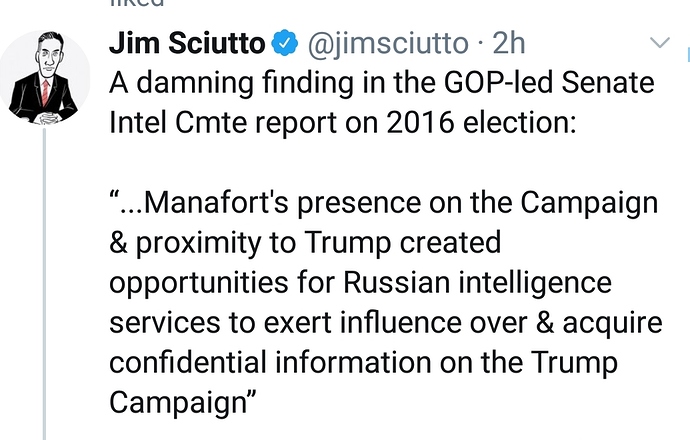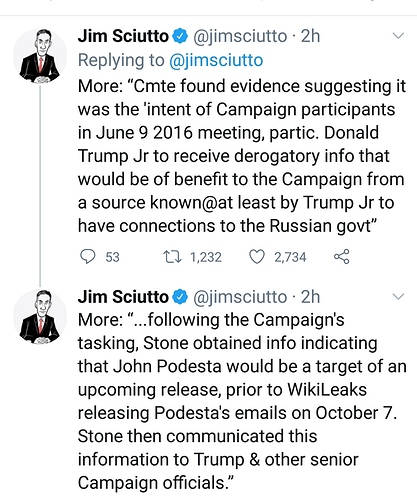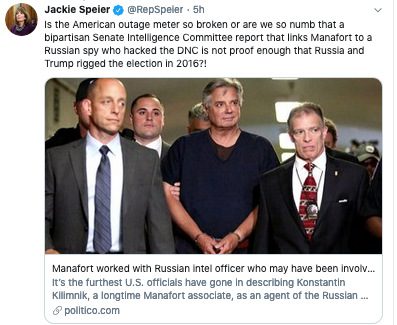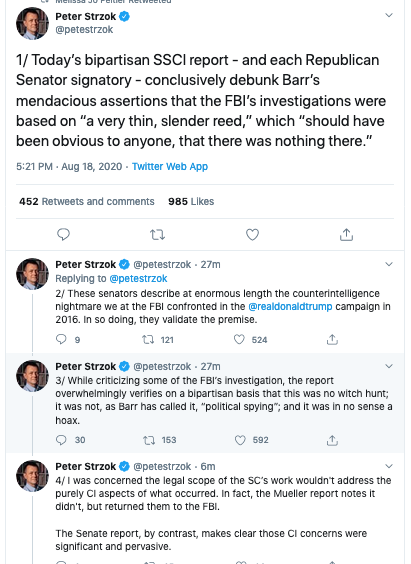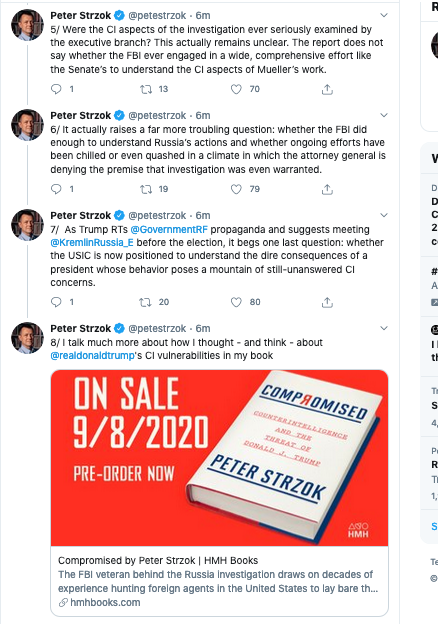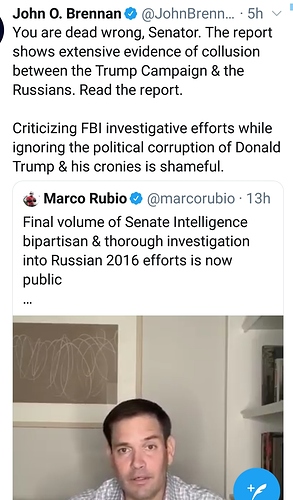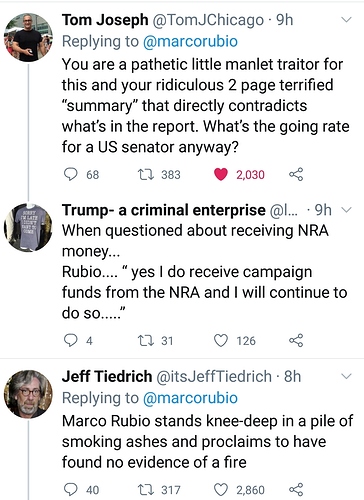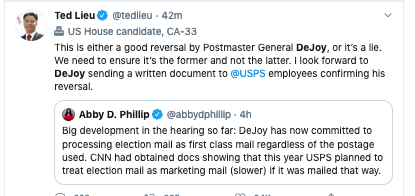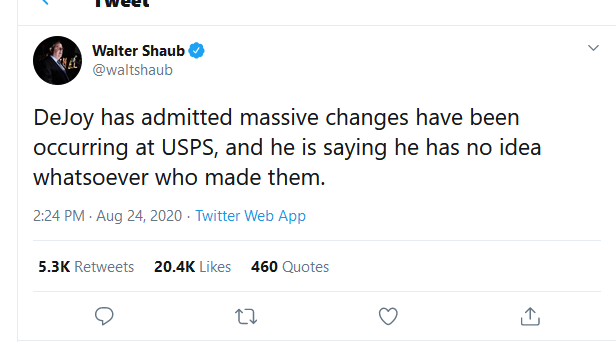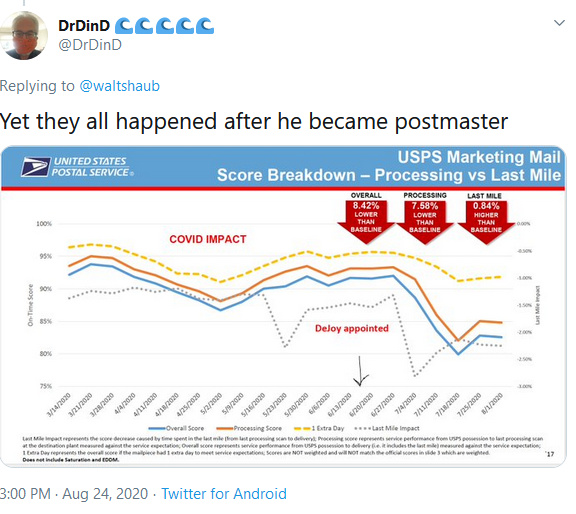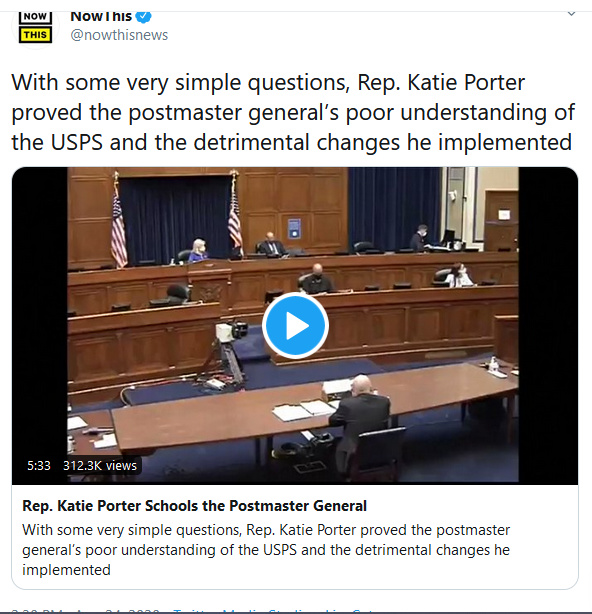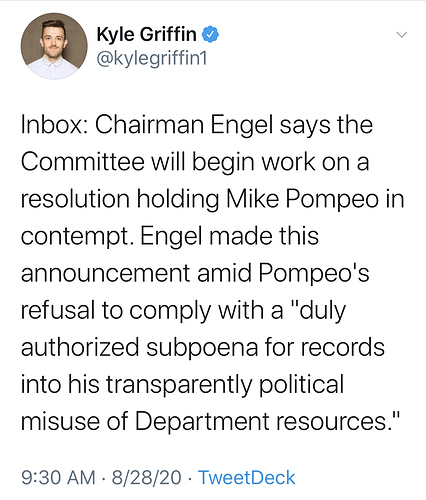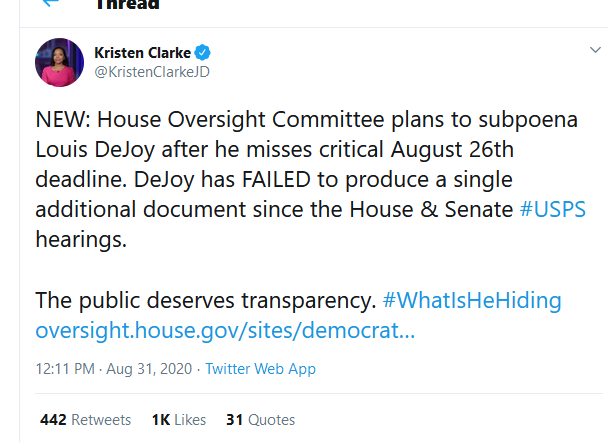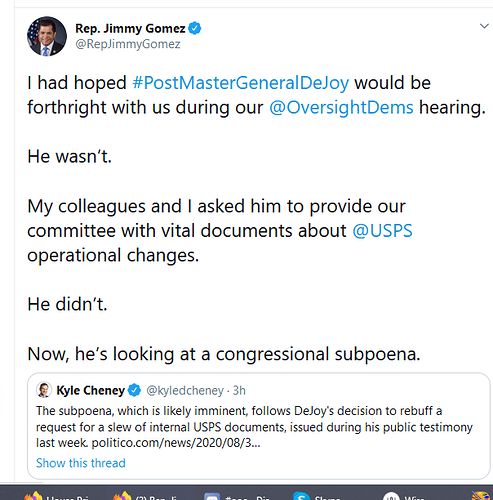More damning and conclusive information which Rs and Dem’s put together in the Senate Intel committee - And Sen Burr was all-in, until he was forced to resign.
Kilimnik - definitely part of Russian intelligence
Manafort, Don Jr, Jared - had “significant connections to Russian government.”
Natalia Veselnitskaya - (set up ‘adoption’ meeting) - had many more suspicious ties that were concering.
Will this get any traction??? It is damning 
The report drew to a close one of the highest-profile congressional inquiries in recent memory, one that the president and his allies have long tried to discredit as part of a “witch hunt” designed to undermine the legitimacy of Mr. Trump’s stunning election nearly four years ago.
Like the investigation led by the special counsel, Robert S. Mueller III, who released his findings in April 2019, the Senate report did not conclude that the Trump campaign engaged in a coordinated conspiracy with the Russian government — a fact that Republicans seized on to argue that there was “no collusion.”
But the report showed extensive evidence of contacts between Trump campaign advisers and people tied to the Kremlin — including a longstanding associate of the onetime Trump campaign chairman Paul Manafort, Konstantin V. Kilimnik, whom the report identifies as a “Russian intelligence officer.”
The Senate report for the first time identified Mr. Kilimnik as an intelligence officer. Mr. Mueller’s report had labeled him as someone with ties to Russian intelligence.
Democrats highlighted those ties in their own appendix to the report, noting that Mr. Manafort discussed campaign strategy and shared internal campaign polling data with Mr. Kilimnik, and later lied to federal investigators about his actions.
Democrats also laid out a potentially explosive detail: that investigators had uncovered information possibly tying Mr. Kilimnik to Russia’s major election interference operations conducted by the intelligence service known as the G.R.U.
“The committee obtained some information suggesting that the Russian intelligence officer, with whom Manafort had a longstanding relationship, may have been connected to the G.R.U.’s hack-and-leak operation targeting the 2016 U.S. election,” Democrats wrote. “This is what collusion looks like.”
The assertion was a sign that even though the investigation was carried out in bipartisan fashion, and Republican and Democratic senators reached broad agreement on its most significant conclusions, a partisan divide remained on some of the most politically sensitive issues.
The Senate report said that the unusual nature of the Trump campaign — staffed by Mr. Trump’s longtime associates, friends and other businessmen with no government experience — “presented attractive targets for foreign influence, creating notable counterintelligence vulnerabilities.”
The Senate investigation found that two other people who met at Trump Tower in 2016 with senior members of the Trump campaign — including Mr. Manafort, Jared Kushner and Donald Trump Jr., the president’s eldest son — have “significant connections to Russian government, including the Russian intelligence services.”
The report said that the connections between the Russian government and one of the individuals, Natalia Veselnitskaya, “were far more extensive and concerning than what had been publicly known.”
